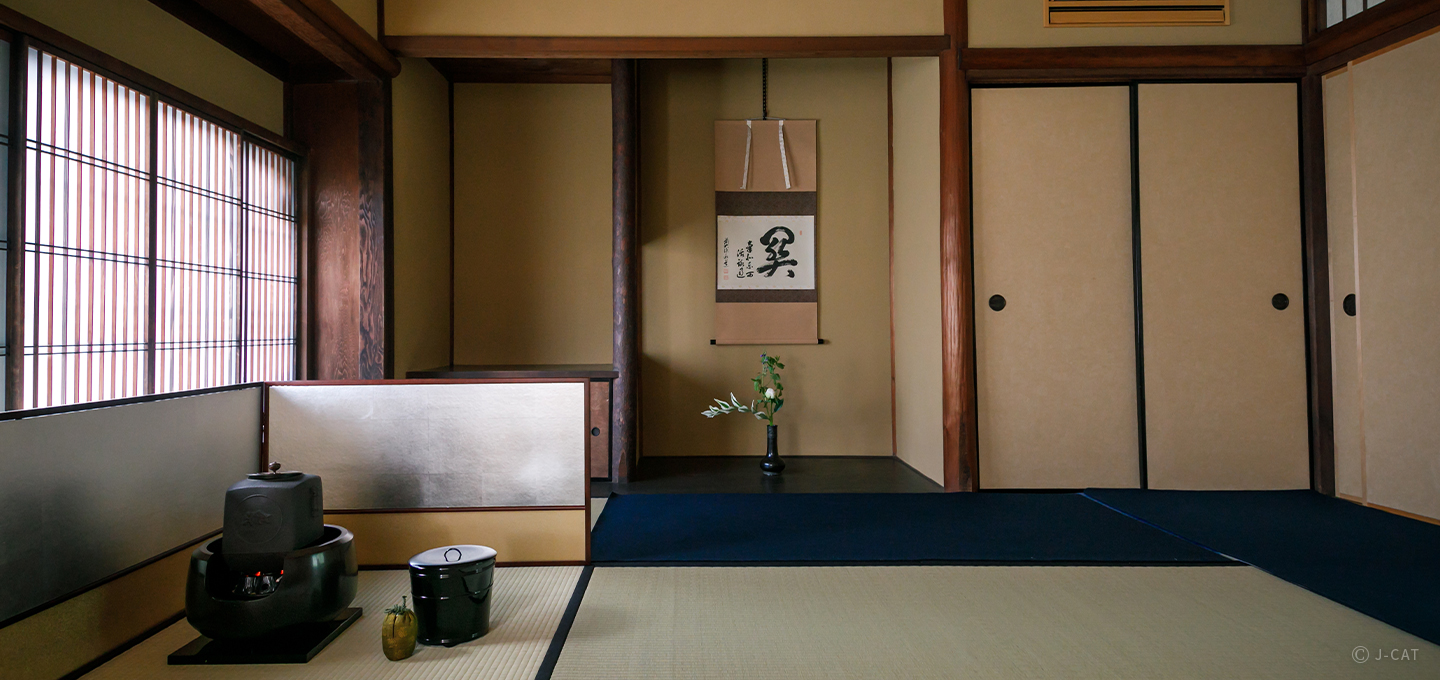
Special Experience
Kyoto
The Way of Tea, Taught by a Belgium-born Master in a Kyoto Tea Ceremony
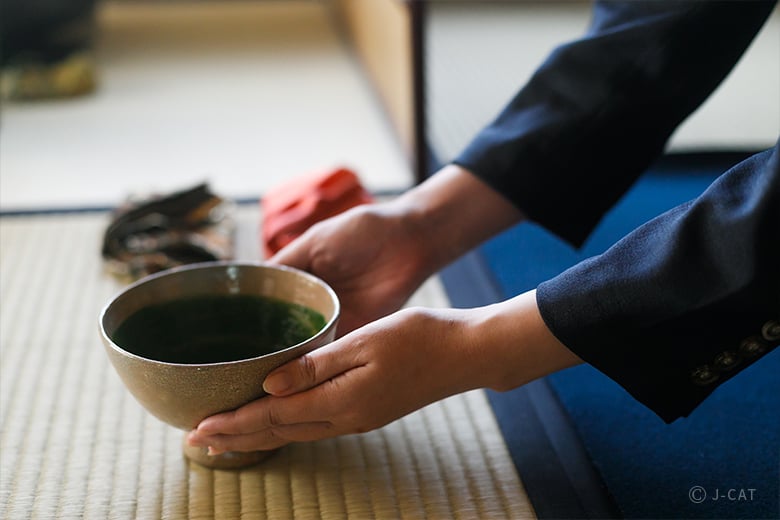
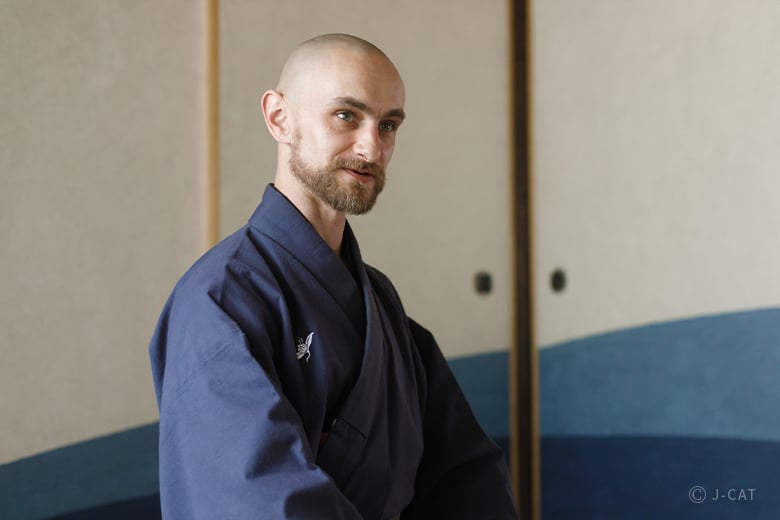
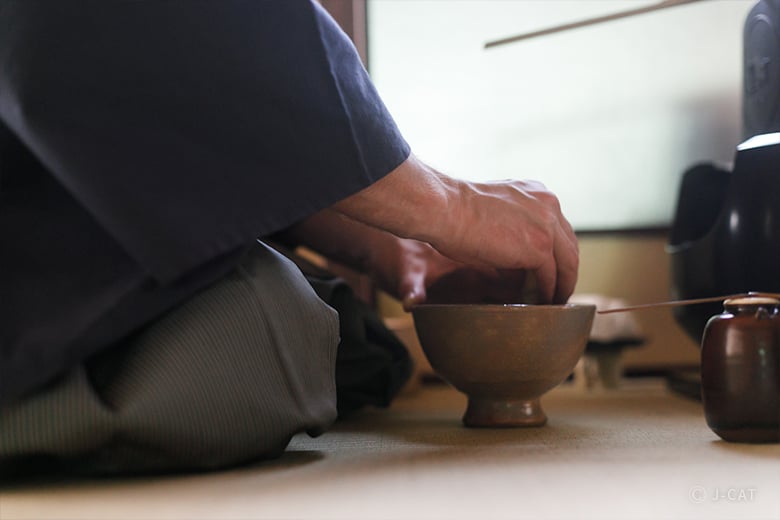
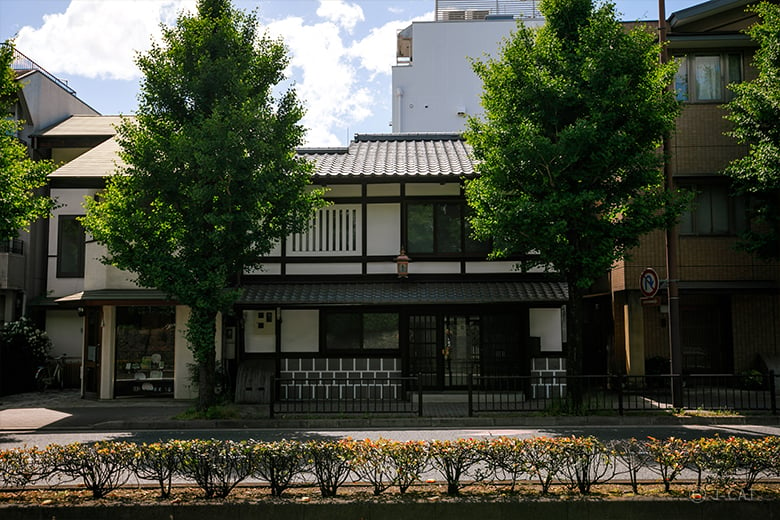
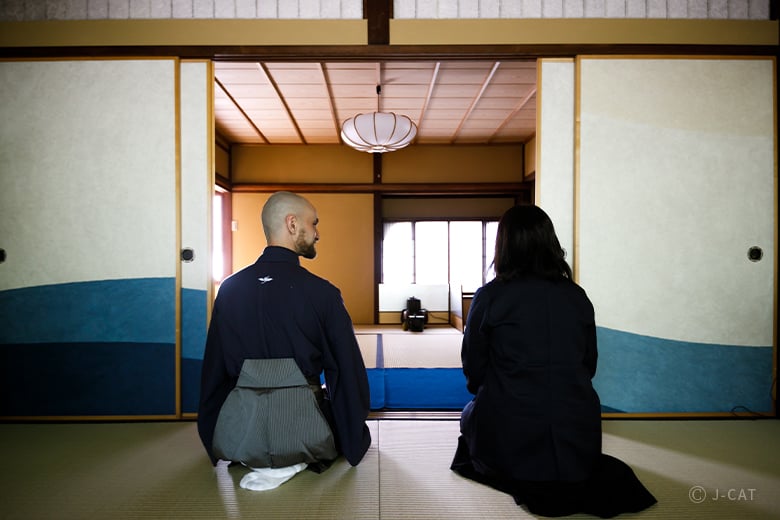
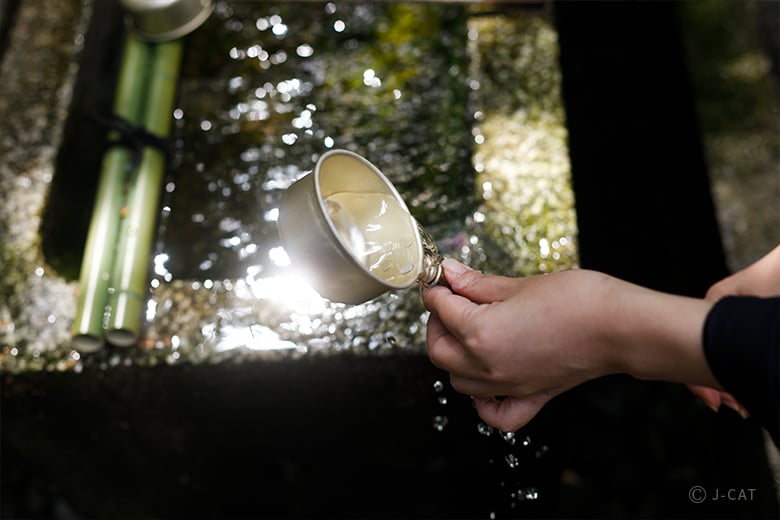
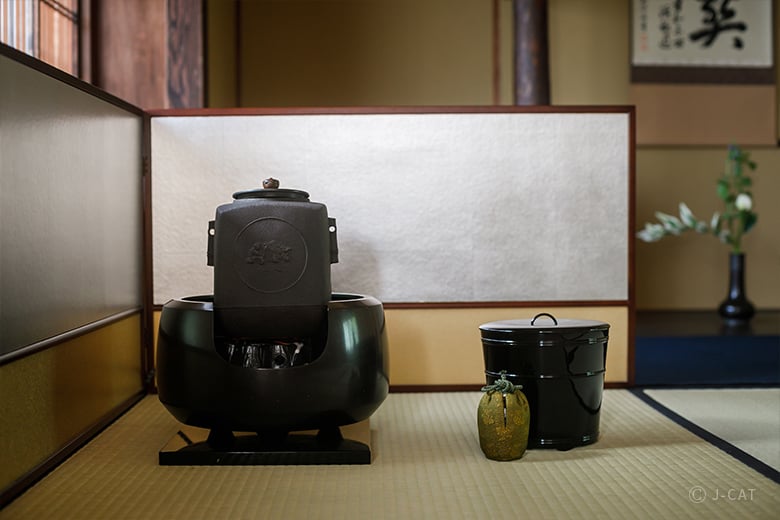
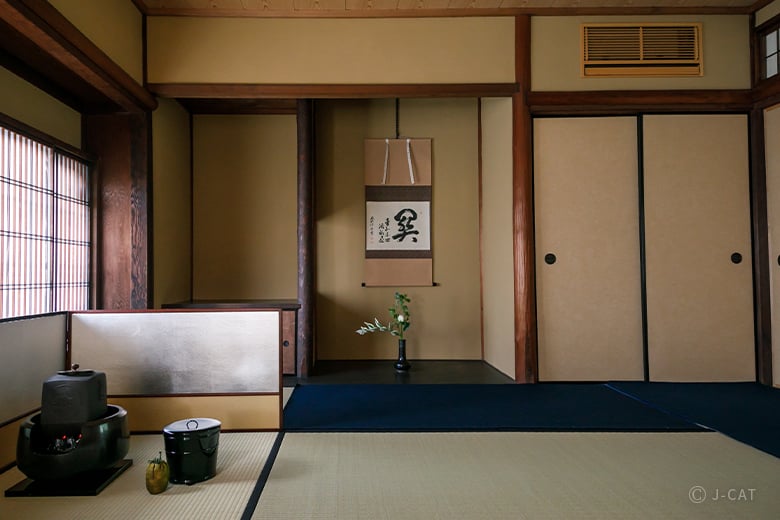
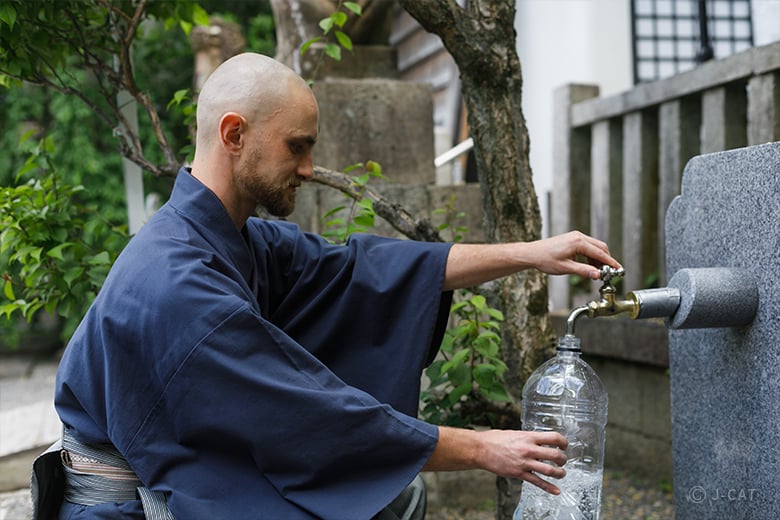
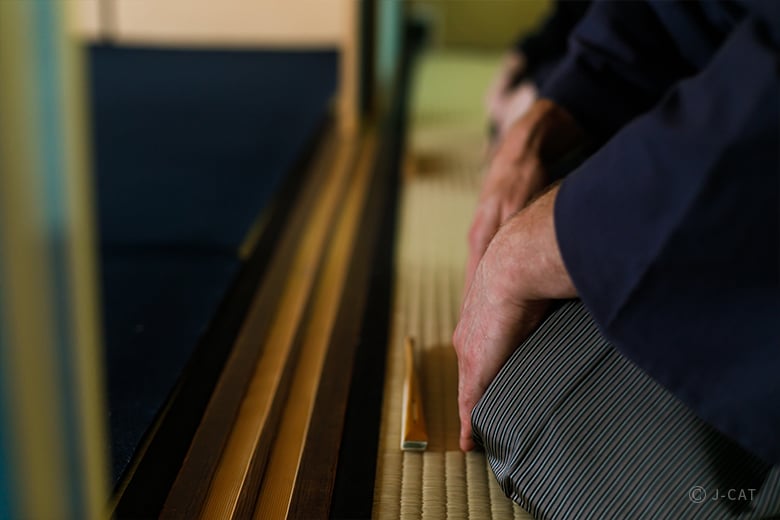
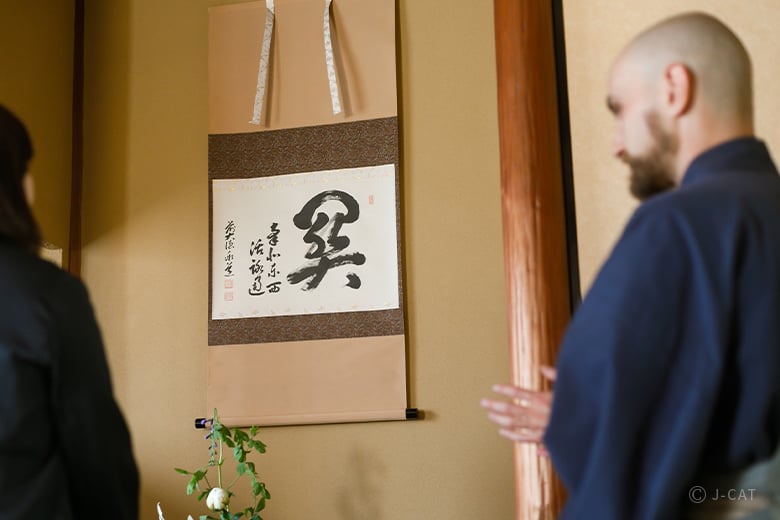
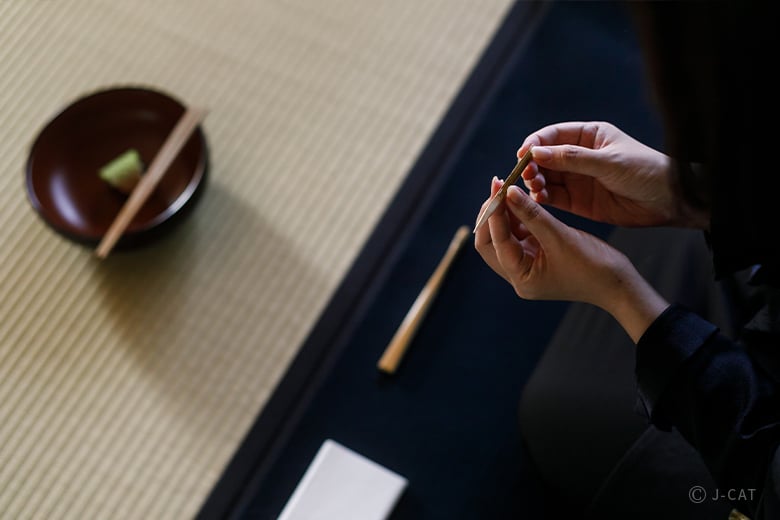
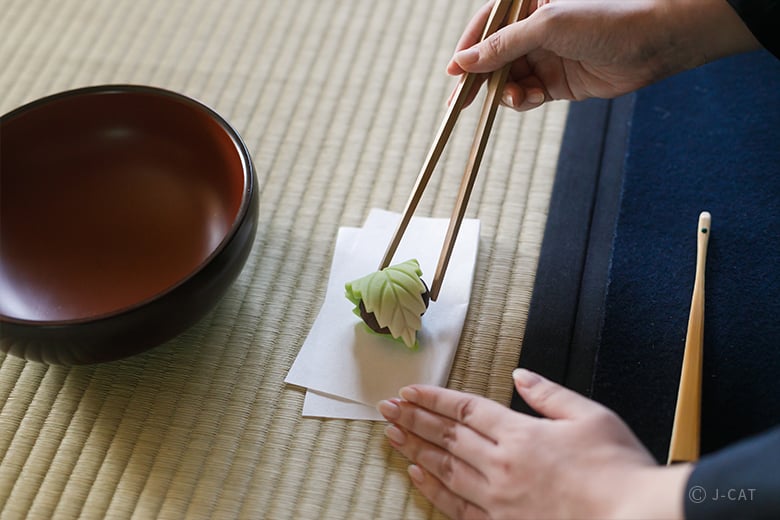
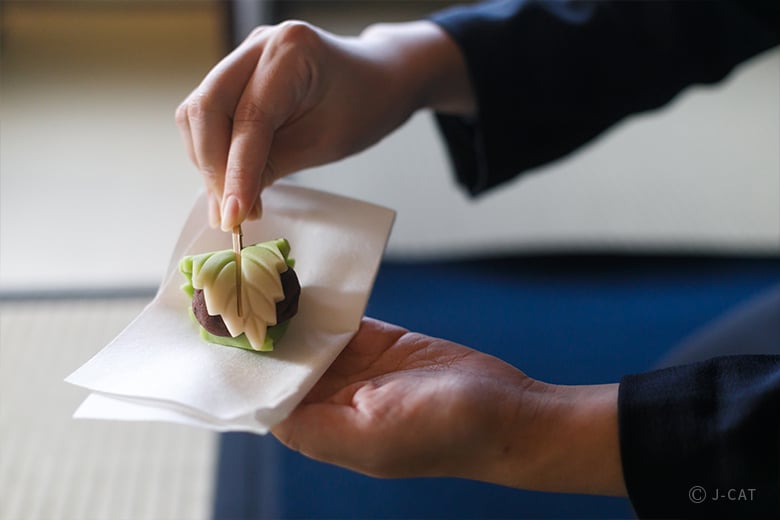
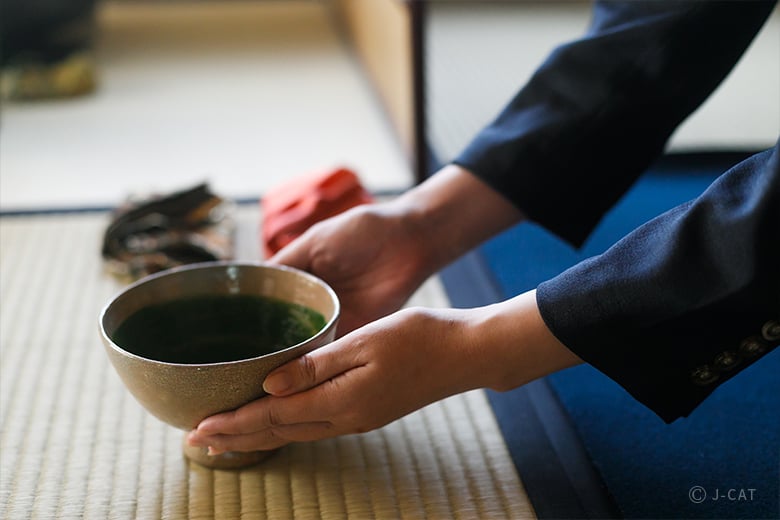
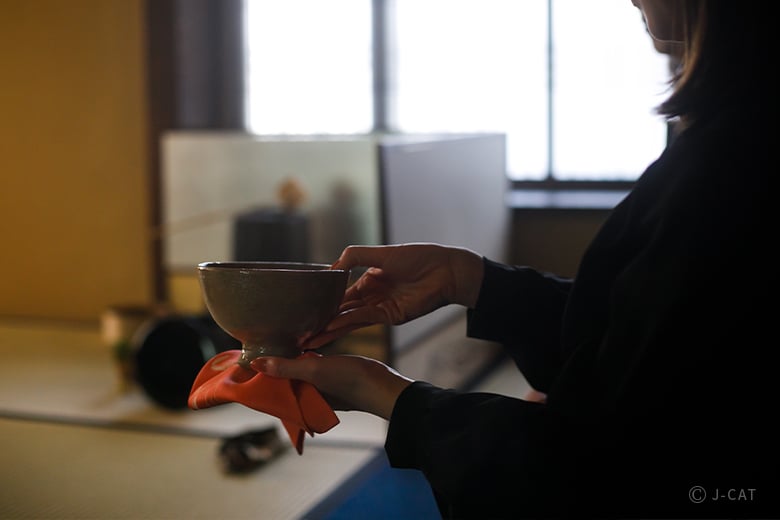
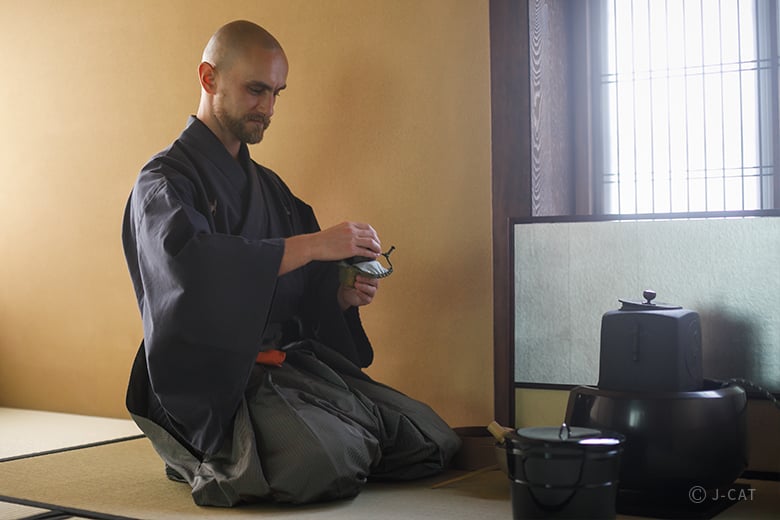
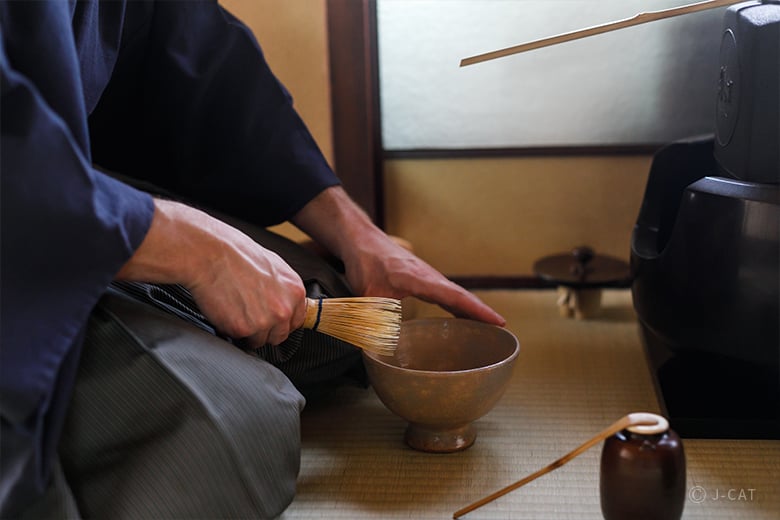
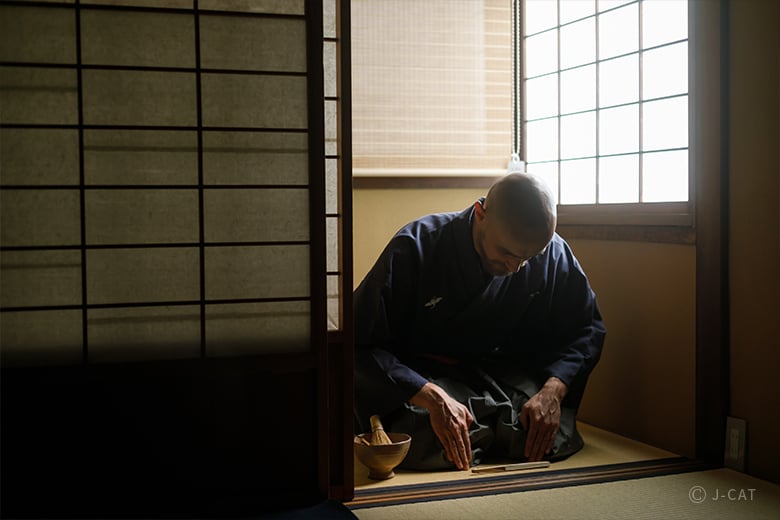
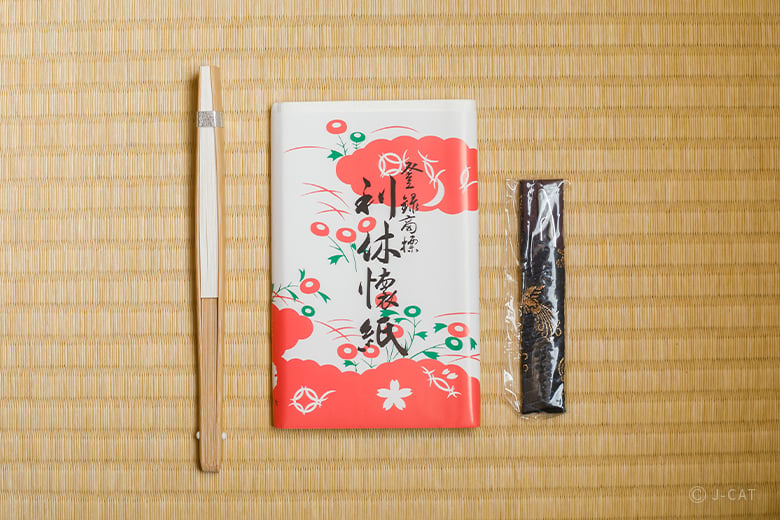




















Overview
Not far from the Kyoto Imperial Palace stands The Tea Crane, into whose tea chamber visitors can step for an authentic tea ceremony in this Wabunka exclusive plan. The ceremony is conducted by Tyas Sosen, a Belgium-born master and instructor of tea ceremony who is the youngest ever foreigner to reach master level in the Enshu school of tea ceremony. After a lesson and demonstration from Sosen on the etiquette of tea ceremony, enjoy koicha (“thick tea”) for the highest degree of tea ceremony hospitality, in a unique opportunity to learn all about the aesthetics of Japan through tea.
Key Features
・Experience an authentic tea ceremony with thorough explanations, getting involved in the preparatory stage to learn all about the hospitality and aesthetic traditions behind tea ceremony
・Enjoy a rare brew of koicha thick tea made with top quality organic leaves grown without pesticides
・Everything you will need for an authentic tea ceremony will be on hand so you can immerse yourself to the fullest. Take home a souvenir ceremonial fan, confectionery knife, and kaishi tea ceremony tissue paper
Kyoto
130mins
from ¥95,000 /group
1 - 5 participants
Available in English
Cancel free up to 11 days prior
Details
An Authentic Tea Ceremony Held Right Beside Kyoto’s Historic Imperial Palace
Kyoto is Japan’s erstwhile capital, and its Imperial Palace was for roughly five centuries the seat of government power and the main residence of the Emperor. On the second floor of a rustic folk house just to its west, ensconced in a neighborhood brimming with historical charm, sits The Tea Crane’s tea chamber. This is the perfect place to steep yourself in true Kyoto atmosphere while soaking up authentic tea ceremony knowledge.

The Tea Crane’s shop building is a part of Kyoto’s urban tapestry of historic residences
Tyas Sosen, the youngest ever non-Japanese master of the Enshu school of tea ceremony and the first ever Belgian Nihoncha (Japanese tea) instructor, is The Tea Crane’s owner and tea master. Sosen’s interest in Japanese culture began when he started learning kendo in high school in Belgium, and grew through a study abroad in Japan in university. It was during his studies in Japan that he realized the connections between tea ceremony, martial arts, and a variety of other disciplines, and began down the path that would lead him to tea ceremony mastery.

This tea chamber of buke-sado, or warrior tea ceremony, features great natural lighting that gives it an open feel
Sosen learned about tea starting with the basics while working at a longstanding tea shop in Kyoto’s famous tea-producing region of Uji. “If tea ceremony is to be my path, then I want to know tea leaves too,” he says. In 2015, he began The Tea Crane as a mail-order shop for pesticide-free Japanese tea. Sosen’s export sales focused on introducing customers to a carefully curated selection of authentic, organic tea leaves grown without pesticides using traditional time-tested methods. He also began conducting tea ceremony experiences, using the way of tea as a pathway through which to introduce as many people as possible to Japanese culture.
Tea Ceremony Using Sacred Water Illuminates the Mindset of Hospitality
The experience begins with a short walk to Sugawarain Tenmangu shrine for water. Putting this extra bit of effort in to use the shrine’s famous water is itself an expression of hospitality. Japan is a land of many natural springs, and the water of the shrine is one such famous example, known for its mineral content and mellow taste, making it perfect for tea. “Tea’s flavor varies not only with the leaves used,” says Sosen, “but with the water as well.”

Enjoy fresh spring water from Sugawarain Temmangu, and learn about the spiritual practices and etiquette of the shrine
This is a shrine to Sugawara no Michizane, known in Japan as the tutelary deity of learning and scholarship – and though there are many such shrines in Japan, this one marks the area where Michizane the man was born. Sosen will guide you in using the chozuya purifying fountain and ladle for ritual cleansing, explaining the significance of each movement. This step is a fundamental part of tea ceremony, and this is a great chance to learn it.

Proper handling of the ladle in drawing water is a part of tea ceremony
Pondering the Host’s Theme for the Tea Gathering in the Tea Chamber
Returning to the tea chamber, it’s finally time to begin the ceremony experience. In principle, tea ceremonies are performed in the seiza kneeling position, but seats are available to make this position more comfortable so guests can relax. Entrance to the tea room also follows a ritualized etiquette, and ceremonial fans are used to delineate spacing and pay respects – rather than to actually fan oneself. When entering, participants place the fan down before themselves and bow. Many schools of tea ceremony perform the bow with the palms flat on the tatami mat, but the Enshu school – which derives from samurai tradition and involves brisker movements – places only the fingertips down lightly.

Receive attentive instruction in how to bow in greeting before entering the tea room
After entering, direct your attention to the tokonoma, an alcove space traditionally found in Japanese tatami rooms, which in tea ceremony is used by the host to display a hanging scroll of calligraphy and a flower arrangement expressing the theme of the tea ceremony and the host’s hospitality. Some of the subtleties of these design features can be lost on those not well versed in tea ceremony, but Sosen provides thoughtful explanations that illuminate the origins and significance of this space and the decorative choices made within it. Even absolute beginners to way of tea will feel enlightened and better able to immerse themselves in the ceremony that follows.

The hanging scroll and flower display are changed with the seasons, offering a new discovery with each visit
The tea chamber beckons you into another world, where you can free your mind of the physical constraints of your body and the flow of time. “This is a place to forget the mundane and steep yourself in the extraordinary, in healing, in everything tea has to offer. Each tea master has a tea name (or sect name), and I serve our guests as ‘Sosen.’” Delight in the unique atmosphere of the tea chamber, away from the workaday world.
Enthralling and Authentic Tea Ceremony, Up-close
Sweets are customarily served before the tea itself, and this experience is no different. Learn to use your kaishi tissue paper and confectionery knife to eat with the grace of tea ceremony and delight in the sweet flavor designed to prepare the palate for tea, and to complement and enrich its flavor.

Seasonally varying sweet pairings also play an important supporting role in tea ceremony
Although usucha thin tea is the more common choice for beginner tea ceremony classes and at wagashi confectionery shops, The Tea Crane opts for koicha thick tea instead for a more authentic tea ceremony experience. Koicha, made from high-grade matcha, is typically twice as concentrated as usucha.

A precious and restful drink not so easily found in the day-to-day
Sosen does the tea preparation himself, and one of the central pleasures of the experience is this chance to see these authentic rituals performed up close. Each movement is purposeful and powerful, and draws you into the spirit so profoundly that you may even find your posture naturally straightening. Bask in this precious moment.

Elegance fills each move of Sosen’s tea preparations
With koicha, participants all take turns sipping from the same tea bowl. This full-bodied preparation surprises with its richness, mellowness, umami, and surprising lack of bitterness – often charming even those who are usually not fans of tea’s bitter palate. This tea is made from the highest quality organic leaves, grown pesticide-free and selected by Sosen himself during visits to tea farms all over Japan. Take a moment to savor their depth of flavor.
Reaching for the Essence of Tea Ceremony
When the tea ceremony is finished, enjoy an informative talk on the accoutrements of tea ceremony, such as the tea whisk and bowls. Each utensil has its own unique name, called a mei, many taken from history or literature, and learning about these further enhances the fun and aesthetic depth of the ceremony.

A souvenir set of tea ceremony essentials: a folding fan, kaishi paper, and a confectionery knife
This plan is a unique opportunity to participate in an authentic tea gathering at a level not usually accessible to beginners, under Sosen’s guidance. In addition to the delights of tea and the hospitality of the host, the simplicity of tea ceremony becomes a doorway through which to experience Japan’s unique cultural values, traditions, and aesthetics. At the end, take home a tea ceremony set including a ceremonial fan, kaishi paper, and a confectionery knife as used in the experience as a keepsake, so you can use them to enjoy tea and sweets at home while reminiscing on your experience.

The tea ceremony is a chance to experience a variety of Japanese traditions
It is not uncommon for participants at tea gatherings to feel reluctant to return to real life. “If people feel sad to leave, I take it as a sign that the tea ceremony was good. Modern society moves fast, so I want people to be able to stop time in their own lives for a moment and enjoy a tea ceremony.” The Tea Crane is the perfect place to do this, leaving the workaday world behind for a moment spent getting reacquainted with yourself, while also experiencing Japan’s traditional culture.
The Tea Crane / Tyas Sosen

The Tea Crane / Tyas Sosen
After developing an interest in Japan through the art of kendo in his home country of Belgium, Sosen came to the country as an exchange student, continuing his studies of Japanese culture and martial arts. It was here that he first discovered tea ceremony and was captivated by its all-encompassing nature. In 2015, he founded The Tea Crane as a mail-order supplier of organic Japanese teas grown without pesticides. Using his qualifications as an Enshu-ryu tea ceremony master and instructor, he continues to work as a tea leaf exporter and as a globally-focused popularizer of tea ceremony and Japanese culture more generally.
Location
The Tea Crane
Kamigyo Ward, Kyoto
Request for booking
Select first preferred date (JST)
February 2026
Sun
Mon
Tue
Wed
Thu
Fri
Sat
Instant Booking
Request Booking

17
Full

17
Unavailable
- Instant Booking: Your reservation is confirmed immediately upon payment.
- Request Booking: You will receive confirmation after the host reviews your request.
Kyoto
130mins
from ¥95,000 /group
1 - 5 participants
Available in English
Cancel free up to 11 days prior
Things to know
Contact Us
If you have any questions, please contact us using the form below.
We also accept bookings from corporate clients and travel agencies.